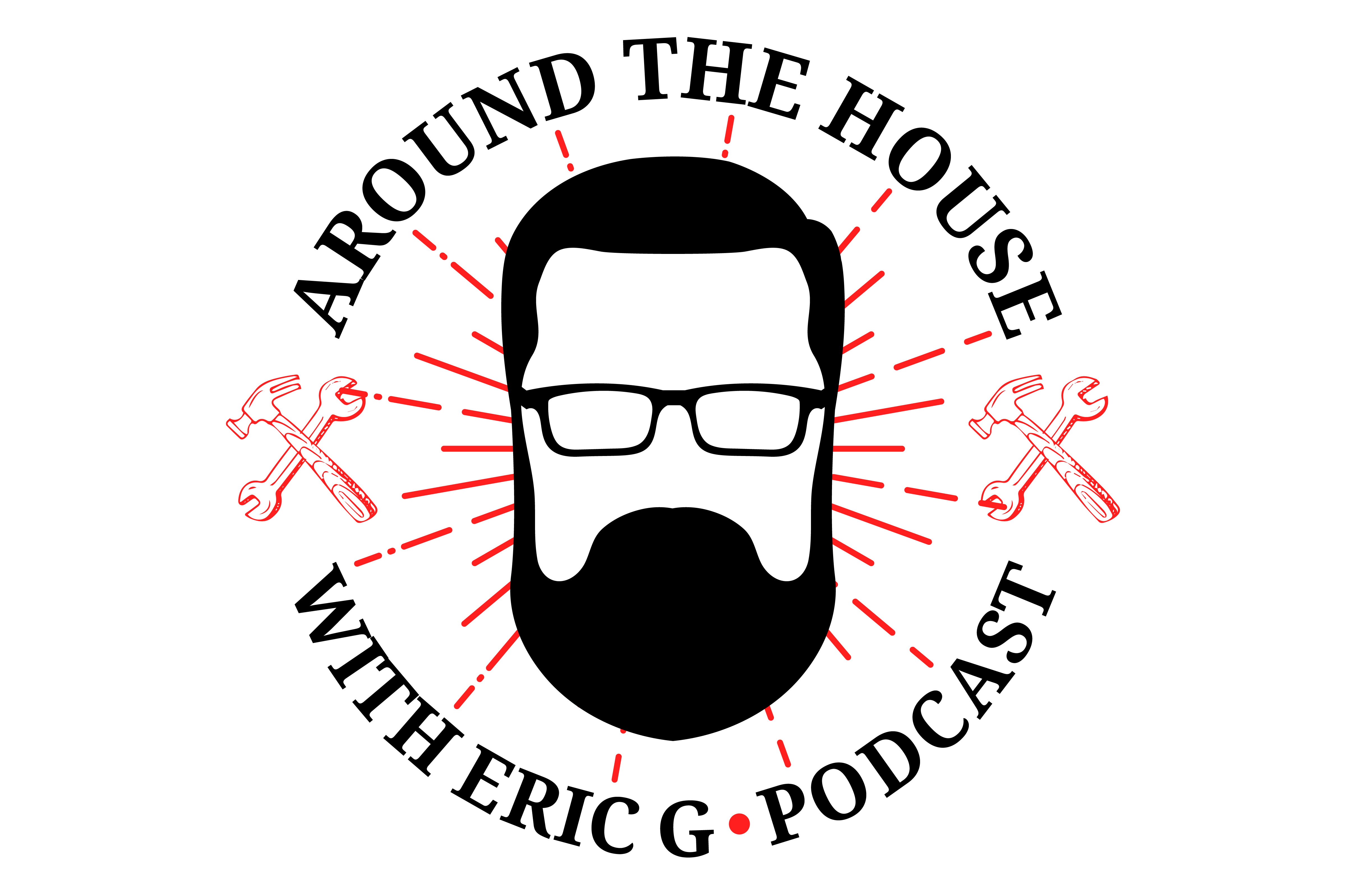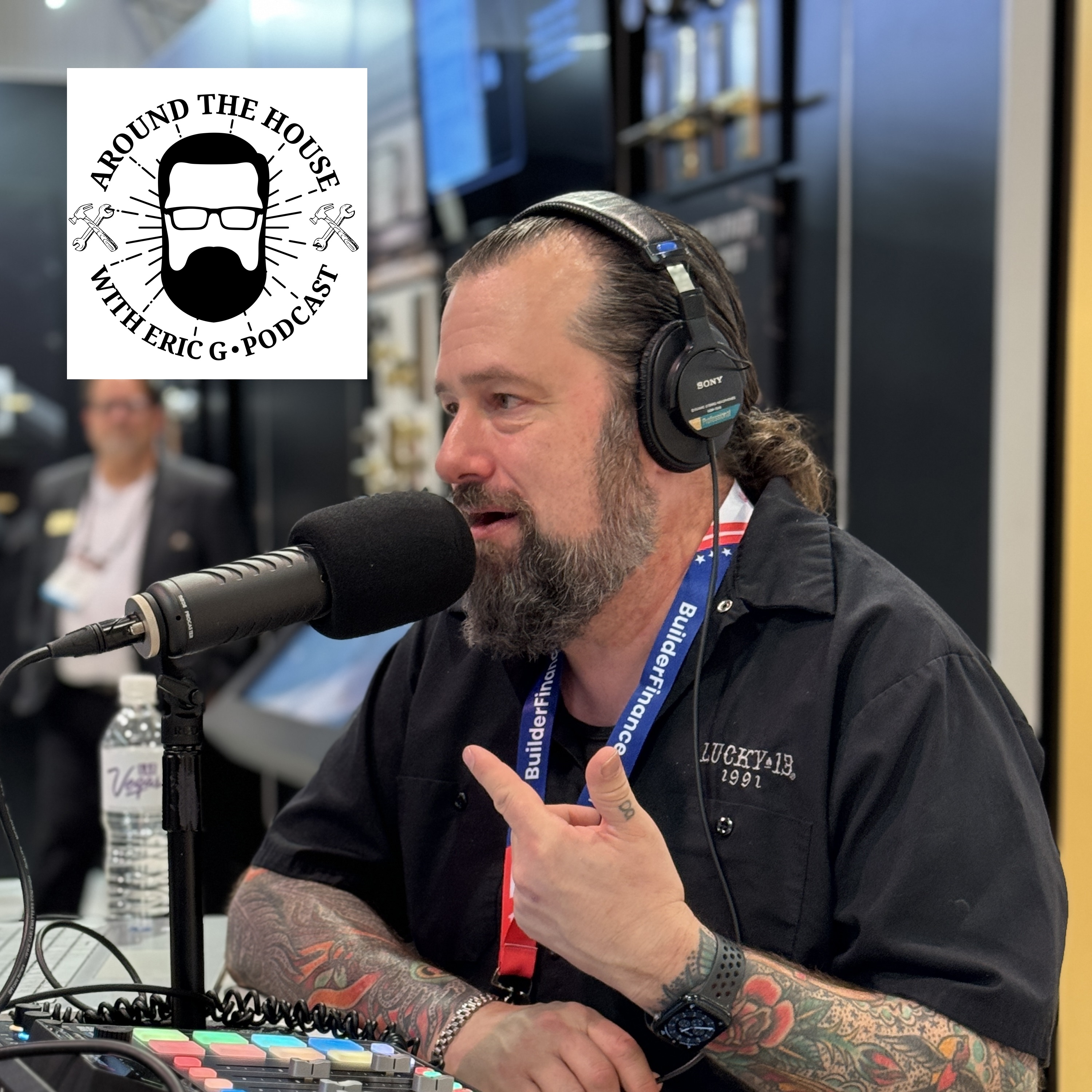Episode 1401
What to do before you buy that EV and Self Cleaning Ovens
In this episode we dive into what can save you money on that power bill. Should you use that self cleaning function on that oven or range? We tackle that and then discuss what you need to do before you go buy that new EV car or truck in your house. You might be suprised on some of the added costs!
Thanks for listening to Around the house if you want to hear more please subscribe so you get notified of the latest episode as it posts at https://around-the-house-with-e.captivate.fm/listen
We love comments and we would love reviews on how this information has helped you on your house! Thanks for listening! For more information about the show head to https://aroundthehouseonline.com/
We have moved the Pro Insider Special on Thursday to its new feed. It will no longer be on this page. You can find it and subscribe right here: https://around-the-house-pro-insider.captivate.fm/
Information given on the Around the House Show should not be considered construction or design advice for your specific project, nor is it intended to replace consulting at your home or jobsite by a building professional. The views and opinions expressed by those interviewed on the podcast are those of the guests and do not necessarily reflect the views and opinions of the Around the House Show.
Mentioned in this episode:
Suscribe to our YouTube Channel
Want even more home improvement tips, tricks, and insider advice? Subscribe to my YouTube channel @AroundTheHouseEricG for project guides, product reviews, and behind-the-scenes content you won’t hear on the podcast. Don’t miss out—hit that subscribe button today!
Clean up inside and out with AeroBroom
The world's first 2-in-1 sweeper broom and cordless leaf blower combined in one convenient tool to clean your outdoor living spaces. With the Aerobroom, you can use it to sweep just like a normal broom, or you can blast debris from hard-to-reach areas.
Transcript
[00:00:23] Intro: this is around the house.
[:[00:00:46] Eric Goranson: Now we've got some great tips today, and this is one that came up, you know, I see trends and trends sometimes mean that there's a lot of questions. And now that we're getting into fall, this is one of them. And it all came down [00:01:00] to how do you deal with that self cleaning? Do you use it? Do you not use it?
[:[00:01:33] Eric Goranson: Because I tell you what I see more often than not. Somebody will have that brand new oven arrange, they'll have it for over the year warranty or two year warranty, whatever it is, and they'll go to use it. They'll use it all year long and 12, 16 months or 25 months in, depending on the warranty period, they used the self cleaning oven for the first time and it overheats and melts something.[00:02:00]
[:[00:02:27] Eric Goranson: You know, worked over the years and you're gonna hope it's gonna be okay, but this is just one of those things that, you know, I don't ever recommend doing it right before the holidays. You know, if you're looking at it going, man, I got a week or two before I really need this oven for something big, great time to clean it.
[:[00:03:09] Eric Goranson: So in almost every case, they say to remove the racks out of the oven. So of course follow those instructions to make sure that you're doing it correctly and then go through the cycle. But here's the thing I don't like baking something quality right after that. Because they're still, even though you wipe it out afterwards, you kinda lose the quote unquote seasoning in there.
[:[00:03:50] Eric Goranson: If you've got painted or Thermo foil or a vinyl covered. Door right next to it. Take those doors off, open the drawers up, make sure [00:04:00] that none of that stuff is near that because all it takes is a little bit of a door leak and you can bubble paint, or you can take the vinyl off the front of those cabinets and cause a bigger problem.
[:[00:04:34] Eric Goranson: So it's probably the riskiest move you're gonna do on that thing for not working later. So just careful with the holidays and stuff coming up. Well, one of the other things I wanted to talk about today is some things you can do around the house to save some money on your electricity bill. Now, our power.
[:[00:05:09] Eric Goranson: So there's a great tip over there. Just go to the bottom of the page around the house, online.com. Look for the sense video and sense is that home energy monitoring system that I have at my house that I've had for a number of years, that tells me exactly what every appliance, every light, every fixture that has electric.
[:[00:05:42] Eric Goranson: And, uh, that's a video I created, but let's talk about some of those things in case you didn't catch the video. Now there's a couple things that you should keep in mind on. Heating water. If you have electricity is one of the most expensive things on your power bill, unless you've [00:06:00] got a heat pump water heater.
[:[00:06:24] Eric Goranson: And so that was good. But if you've got that regular water heater and you don't want to change it out, or it's in a space where a heat pump, water heater doesn't work. Here's some of the tips I wanna see, I wanna make sure that you're maintaining that water heater. You know, if you've put it in a few years ago, make sure that you're flushing it.
[:[00:07:01] Eric Goranson: So be careful where you put it, but flush that out, get it all cleaned up. And, uh, make sure if you're on a well, it's even more. So if you've got hard water, it's even worse, but make sure you flush that. Um, every couple of years, if you've got decent water and if you've got really hard water on a well, I've had to do it every six months.
[:[00:07:39] Eric Goranson: And when in doubt, you know, here's one thing to keep in mind. I, I get worried on water heaters that are 10 years old or older. Cause you know, that's about the average lifespan is about a decade on a water heater. Eight to 10 years is pretty average out there. But if you go take a 10 year water heater, that's not been maintained and you start cracking that thing open and doing, you could be open on a can of worms.
[:[00:08:20] Eric Goranson: And nothing comes out and I literally had to sit there, turn the water off to it and open the, uh, pressure valve on it and use an air hose and, uh, burp air up into it to create a spot, just to be able to get water, to come out. And then it took out all this calcium outta the inside of it. It was a mess.
[:[00:08:57] Eric Goranson: Uh, at that point I probably should have replaced the water heater, [00:09:00] but I made it last couple years until I ended up having to replace it. So just be careful with that. That's one of them right there. Another one is those heating, um, you know, those cooling actually, if you talk about refrigerators, let's get into that first before get into heating and cool.
[:[00:09:32] Eric Goranson: And if you've got a blanket around it, guess what heat doesn't transfer well. So it's costing you more money there. So little ShopVac down there, be careful not to damage the coils. Just get down there around them. Don't really touch 'em cuz they are very delicate. So be careful when you put anything down there, make sure, uh, when I doubt unplug it out of the.
[:[00:10:11] Eric Goranson: That's pretty cool. And it's right in the front. There's a little panel. That I can go in and how you do this is make sure that you, uh, you know, get the cycle drained, follow the directions on it. But I get a little pan. I drain the water out of it and then loosen this plug out. And that is where you find all the hair pins, bolts, screws, pennies, dimes, nickels quarters.
[:[00:10:52] Eric Goranson: And so you're putting very wet clothes in the dryer. So the dryer has to work twice as hard to do it. So make sure every six months to a year you're changing that [00:11:00] filter out there. Now I had a GE. It was just durables all get it. I had that thing for probably 12 or 15 years front loader, but I had to take the whole front panel off on that thing.
[:[00:11:28] Eric Goranson: Now I've got a whole bunch other tips on that video, which you can find it around the house, online.com across the bottom of the website. There you'll find it right there and you can watch it with my tips on what to do there, to keep that energy build just a little bit down. Now, the other thing I wanted to talk about today was electric vehicle charging.
[:[00:12:04] Eric Goranson: However, I wanna warn everybody before you go out, looking at that. you need to look at your house first to see if it's going to be able to charge that correctly because yeah, they do have a lot of these have a charger. You can plug into a regular outlet, but guess what? That could take 24 hours or more to charge.
[:[00:12:45] Eric Goranson: So if you take half of that and put it towards your charger, you have got a world to hurt. So if you've got a hundred amp panel, basically you need to plan on making sure that you do a panel upgrade. That could be 2000. That could be $10,000, depending on what has to. [00:13:00] So make sure that you have that in your budget to do that.
[:[00:13:22] Eric Goranson: Put a bigger panel in that'll accept more breakers. If that works. Maybe you don't have enough slots in there, but these are things that you should explore. The first thing before you go by that, make sure that you've got the ability to charge it at home or maybe down the street, you've got a super charging station or something like that, where it makes sense where you can go down there on the way home or during the evening, pop it off over there and, and, uh, do some email follow up while that's charging.
[:[00:14:04] Eric Goranson: If you don't have enough power in that panel, one, you're gonna overload the system two. It's not gonna charge the car as fast as you think. You're not gonna get as many, you know, miles per charge outta that whole thing. So it's gonna really slow down your charging. And then three, that could be a fire. So you wanna make sure and get that dialed in.
[:[00:14:42] Eric Goranson: So you can charge both cars at the same time. So if you've got, uh, two people in the house that are charging plan for that to be expensive as well, and make sure you've got that in the. Because guess what? That's not covered as part of the price of the car. All right, everybody. We've got a great show ahead this weekend that you don't wanna miss.[00:15:00]
[:[00:15:18] Eric Goranson: Ready? Have a great rest of the week. Happy midweek. Special. We'll talk to you on Saturday. Thanks again for listening to around the house

